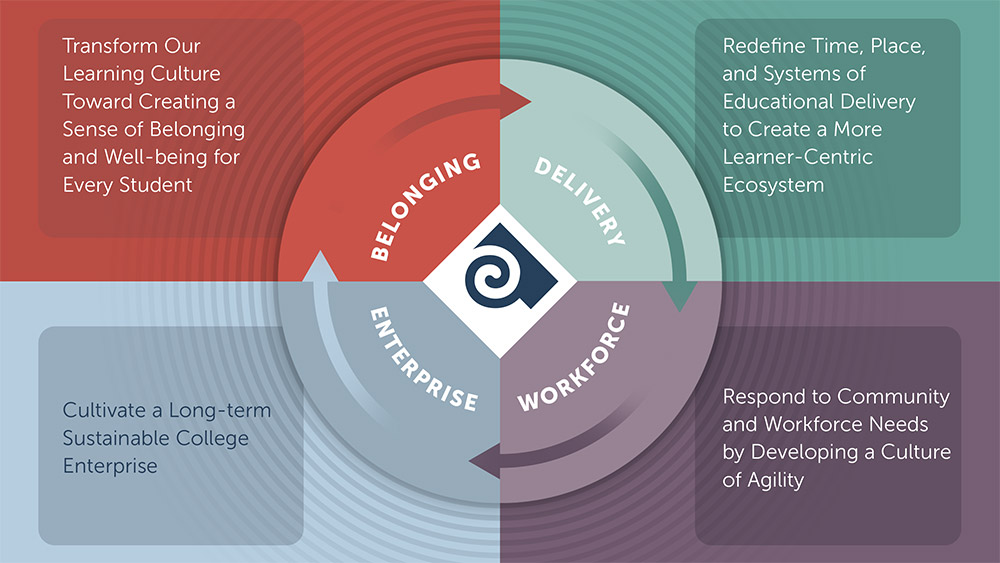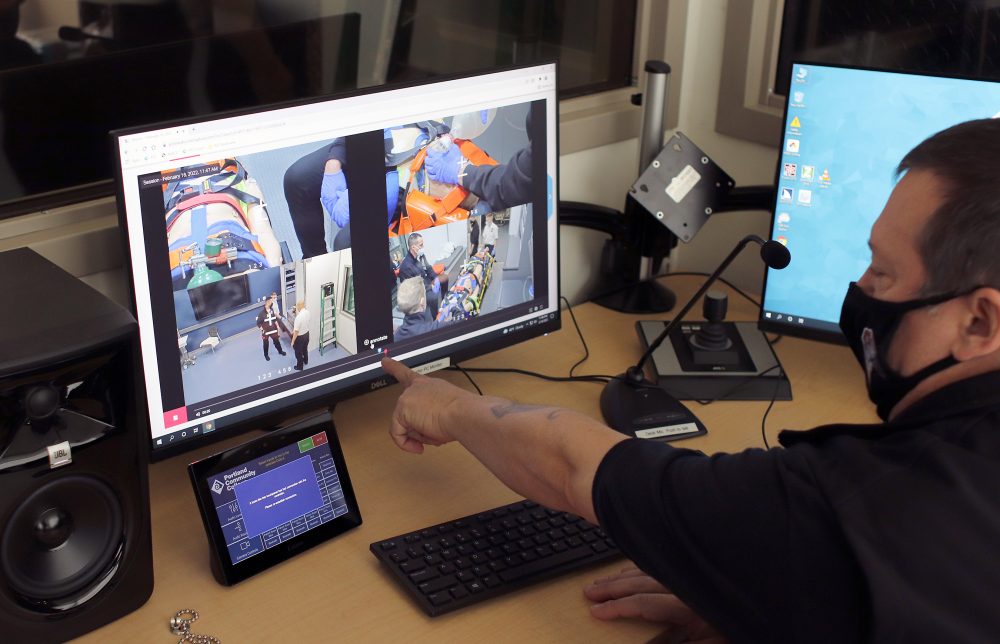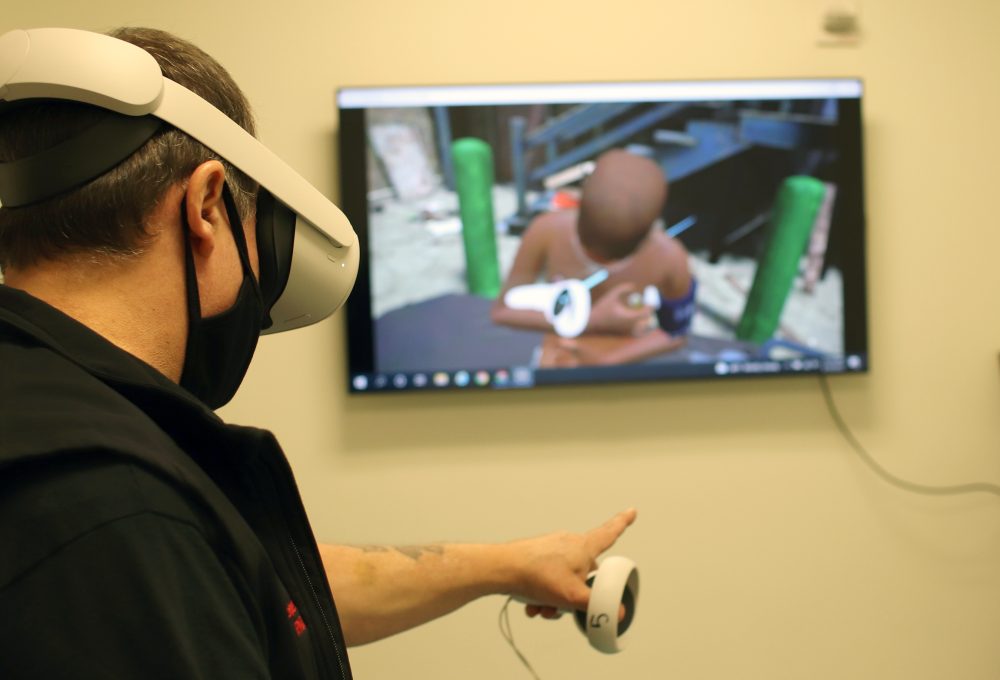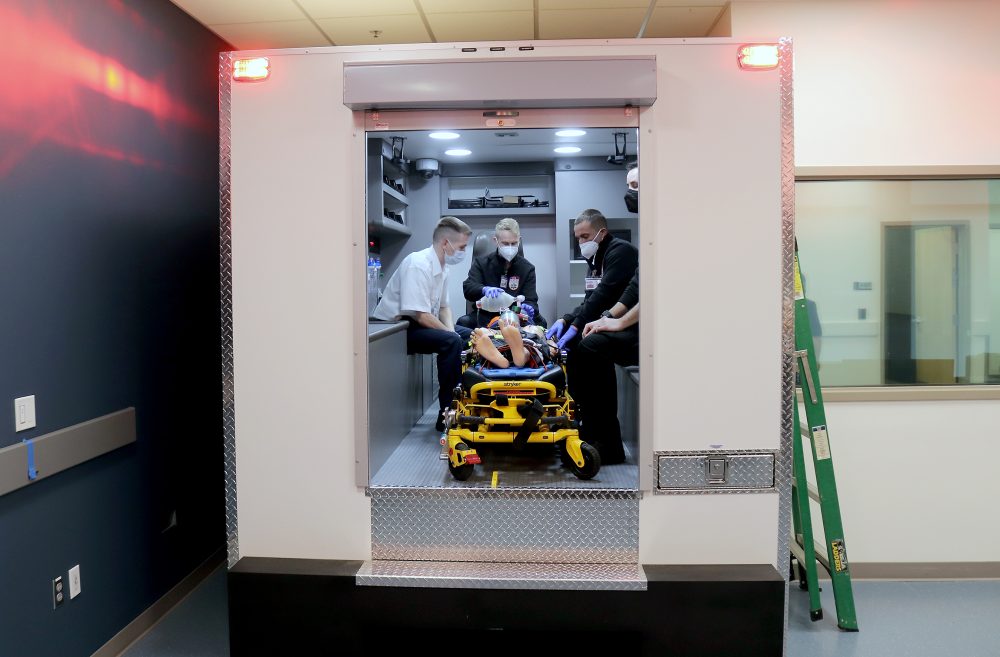This content was published: March 21, 2022. Phone numbers, email addresses, and other information may have changed.
Bond-funded Medical Simulation Center gets real for PCC’s EMS Program
Photos and story by James Hill
The field of Emergency Medical Services is facing a new kind of reality – a virtual one.
Portland Community College’s Emergency Medical Services (EMS) Program is using brand new Oculus Virtual Reality (VR) headsets to better train students on the variety of emergency scenarios they will face in real life. This VR training suite is part of the new Cascade Campus Medical Simulation Center that opened this past academic year to students.
The 2,200-square-foot center is the latest development in health care simulation to assess student readiness before they treat real patients in a hospital or an ambulance. Typically, PCC trains several hundred Emergency Medical Technicians (EMT) and about 25 paramedics every year.

The Strategic Plan: Workforce
The 2020-2025 Strategic Plan prepares the college for the future of higher education. With its commitment to developing local industries like health care, the college responds to community and industry needs by developing the region’s workforce.
“The value of simulation in health care training is immense,” said Robert Victorino, EMS Program specialist. “It allows for both computer-based and VR headset delivery of EMS scenarios. VR in health care training has been around for probably 10 years, but platforms specifically for EMS have been nonexistent or very limited. As the technology and programming have become cheaper, it has opened up VR to our discipline.”
The Cascade Medical Simulation Center was funded by the 2017 bond to expand health professions by developing new interactive training spaces. The lab features three patient care spaces: one ambulance and two ICU nursing rooms, as well as two debriefing rooms.
There are isolated control rooms, allowing instructors to conduct training, observe and record students during the scenarios. This is done through an integrated audiovisual and technology system that provides easy playback of the recordings within two dedicated debrief rooms.
A new cloud-based learning management system gathers the simulation recordings and provides students and staff access from anywhere. This system, which allows faculty to evaluate and debrief with students with greater detail on proper medical protocol and technique, also lets staff gather extensive data on student improvements, equipment and space usage.

Ceiling mounted cameras and microphones record the scenarios for playback and review by students and instructors.
The VR simulation suite itself is funded by a grant from President Mark Mitsui’s Immersive Education Pilot Project that spurs training innovation within PCC’s career-technical programs. The suite sports a large format flat-screen monitor and ceiling speakers where instructors play videos of street scenes to simulate real-life conditions as the students wear the headsets. In addition, ceiling mounted cameras and microphones record the scenarios for playback and review by students.
Victorino builds clinical case scenarios based on the calls he experiences as a practicing paramedic with Skamania County EMS in Washington. He shares them with students in a realistic, real-time virtual environment that is repeatable and allows for mistakes, which leads to a greater chance for student success when they work on real patients, he said.
The simulation center allows for collaboration. The Nursing Program is sharing the space until the Sylvania Campus Health Technology Building improvements are completed next year, also through voter-approved bond funding. This move was critical for the program as it allowed nursing staff to develop a curriculum and use the state-of-the-art training rooms. These resources could be immediately implemented for the students experiencing clinical loss associated with the fifth wave of the pandemic.
“We were able to resume our regular simulation curriculum offered to all students in the program,” said Jane Palmieri, interim nursing director. “Additionally, we are able to utilize the space to create clinical replacements when we experienced the loss of over half of our hospital clinical placements for the class of 2022. The larger debrief spaces at Cascade Simulation Center offer more options than our previous location, so we are able to accommodate all our students.”
When the Nursing Program’s new space is completed at Sylvania, the Cascade Medical Simulation Center will become a full-time facility for the EMS Program.
“Simulation is a proven method for education,” Victorino added. “This space is an invaluable asset to PCC students from all health care disciplines.”


